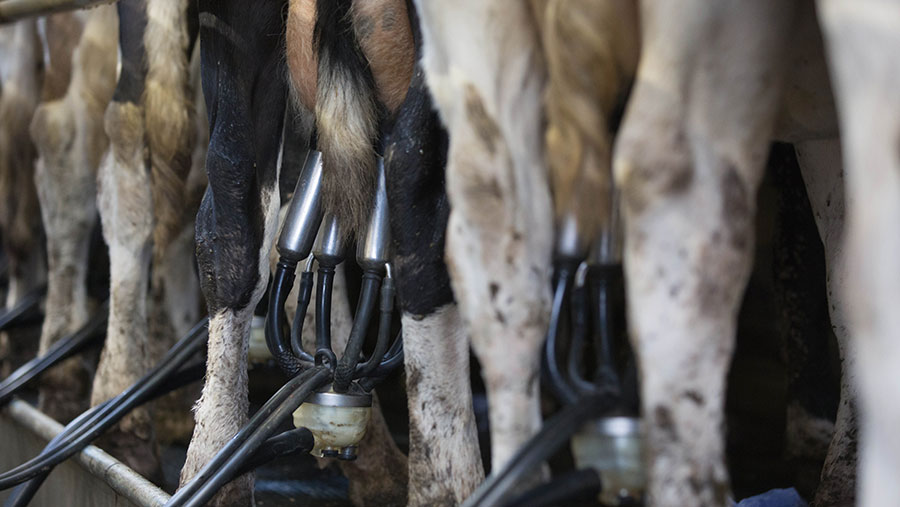Coronavirus: Graham’s dumps milk as RABDF calls for bailout
 © Tim Scrivener
© Tim Scrivener Milk producers in Scotland supplying Graham’s Family Dairy are the latest to see a price cut as the processor battles a milk surplus caused by the shutdown of food businesses.
Graham’s managing director Robert Graham said the company, which has a contract to supply Aldi supermarkets but also sells a significant proportion of its milk to the food service sector, was having to dispose of some milk through its own waste treatment plant, .
“Food service volume is not being replaced by supermarkets,” he said. “There is nowhere left [to send it].”
“It is a challenge as we come into spring flush.”
See also: Coronavirus: Farmers dump milk as supply chain backs up
Fulfilling supermarket orders had also been challenging as demand had fluctuated by up to 100% on a daily basis, but the company had managed to meet all quotas asked for so far, Mr Graham said.
He said all milk was still being collected from farms but on days when there was an excess the cream was removed and the remainder disposed of.
When this occurs, the processor and the farmer are sharing the costs, meaning farmers lose 8p/litre on all milk affected.
The processor also announced last week that it would cut 1p/litre from its overall milk price from 10 April, taking the value of its standard liquid litre down to 24.5p, which will leave disposed milk worth just 16.5p/litre.
Fresh call for government support
Meanwhile, the Royal Association of British Dairy Farmers (RABDF) said it was calling on the government to throw a lifeline to an estimated 300 farmers who are not insured for milk losses or are being affected by price cuts.
It is calling for a short-term financial support scheme that would see the government directly reimburse affected dairy farmers up to their standard milk price.
The charity say it should be available only to farmers supplying a processor who could show that their marketplace had been affected solely by the impact of the coronavirus, and not to those who were still being fully paid or were covered by insurance.
RABDF chairman Peter Alvis, who is also managing director of cheesemaker Lye Cross Farms, said: “This scheme will ensure both short-term and longer-term food security and ease the stress on the industry.
“Removing the excess distressed milk from the marketplace will help to stabilise the current spot price without causing long-term market distortion.”
It would also allow those affected dairy farmers to continue to support the supply industry beyond the farmgate and prevent extra cows being culled, which would exacerbate the problems in the beef supply chain, he added.
What has the government done already?
The government is currently offering non-sector specific support for businesses through a package of measures including the Coronavirus Business Interruption Loan Scheme, statutory sick pay relief and tax deferrals, with additional support for the retail, leisure and hospitality sectors.
It has also introduced temporary amendments to the Competition Act 1998 which allows the sharing of information on labour, facilities, stock positions and logistics, but not costs or pricing.
This could could help processors collaborate more closely with each other to minimise waste without breaking the law.
Defra is understood to be investigating options for wider intervention in the sector whilst assessing the necessity of any such intervention in light of the competition law easement.
A spokesperson for Defra said: “We have taken a number of measures to support our food and farming sectors to manage the impact of coronavirus on the dairy supply chain.
“We are also working very closely with farmer and processor representatives to understand the specific challenges that the dairy sector is facing.
“Frequent discussions with the dairy supply chain will continue through this crucial period to understand what further support the sector needs.”
